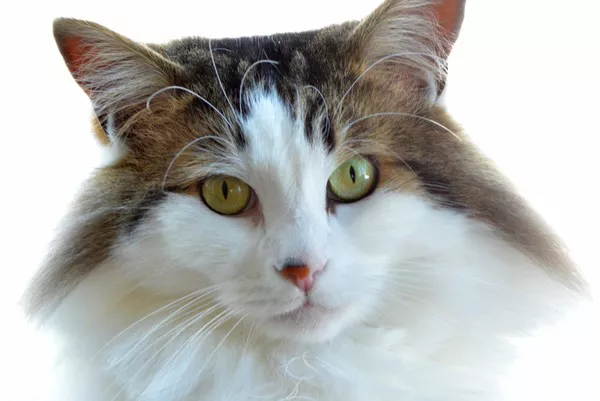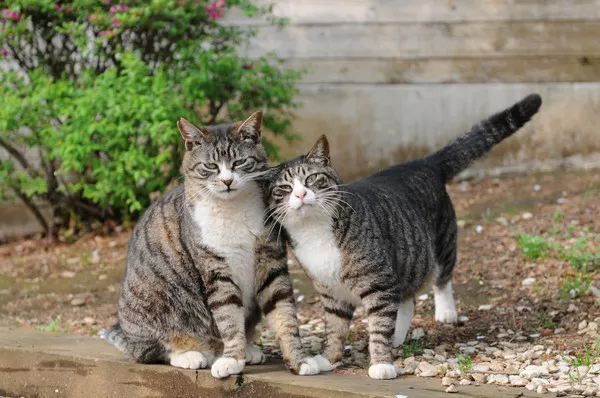Cat hospitals play a crucial role in the health and well-being of our feline companions. Unlike general veterinary clinics, cat hospitals are specialized facilities designed specifically for the care of cats, providing a range of services tailored to their unique needs. This essay will explore what you can do in a cat hospital, the various services offered, the benefits of choosing a cat hospital over a general veterinary practice, and how these facilities contribute to the overall health and happiness of our beloved pets.
Understanding Cat Hospitals
What Is a Cat Hospital?
A cat hospital is a veterinary facility that focuses exclusively on the medical care and treatment of cats. These hospitals are often equipped with specialized tools, technologies, and staff trained specifically in feline medicine. The environment in a cat hospital is typically designed to minimize stress for cats, recognizing that they can be more sensitive to unfamiliar surroundings and the presence of other animals.
The Importance of Specialized Care
Cats have unique physiological and behavioral characteristics that can affect their healthcare needs. By specializing in feline medicine, cat hospitals can provide more tailored care, including:
Understanding Feline Behavior: Staff trained in feline behavior can better manage anxious or stressed cats, making visits less traumatic for both the cat and the owner.
Specialized Equipment: Cat hospitals often have equipment designed for the specific needs of cats, such as smaller anesthesia machines and specialized dental tools.
Focused Expertise: Veterinarians and staff in cat hospitals often have additional training and experience in treating cats, leading to better diagnosis and treatment outcomes.
Services Offered in a Cat Hospital
Routine Veterinary Care
Routine care is fundamental to maintaining a cat’s health. Services in this category include:
Wellness Exams
Regular wellness exams are essential for early detection of health issues. During these exams, veterinarians will:
- Conduct a thorough physical examination.
- Check vital signs, including heart rate and temperature.
- Discuss any concerns the owner may have regarding their cat’s health or behavior.
Vaccinations
Vaccinations are crucial for preventing common feline diseases. A cat hospital will provide vaccinations for:
- Feline panleukopenia
- Feline calicivirus
- Feline herpesvirus
- Rabies
Parasite Prevention
Preventative care for parasites is vital. Cat hospitals offer services such as:
Flea and Tick Prevention: Recommendations for topical treatments or oral medications.
Deworming: Routine deworming and fecal examinations to check for intestinal parasites.
Diagnostic Services
Cat hospitals are equipped to perform a variety of diagnostic tests to identify health issues.
Laboratory Services
In-house laboratories allow for quick testing and results. Common tests include:
Blood Tests: To assess organ function, detect diseases, and evaluate overall health.
Urinalysis: To check for urinary tract infections, kidney issues, and diabetes.
Fecal Exams: To identify parasites or gastrointestinal issues.
Imaging Services
Advanced imaging techniques help diagnose various conditions:
X-rays: Useful for examining bones, detecting tumors, and assessing organ size.
Ultrasound: Non-invasive imaging that provides detailed views of internal organs.
Surgical Services
Cat hospitals often provide a range of surgical services, including:
Spaying and Neutering
These routine procedures help control the cat population and prevent certain health issues, such as cancers and behavioral problems.
Soft Tissue Surgery
Cat hospitals are equipped to perform various soft tissue surgeries, including:
- Tumor removals
- Gastrointestinal surgeries
- Urinary tract surgeries
Emergency Surgery
In cases of trauma or acute illness, cat hospitals can provide emergency surgical services.
Dental Care
Dental health is crucial for a cat’s overall well-being. Cat hospitals offer:
Dental Cleanings
Routine dental cleanings help prevent periodontal disease, which can lead to more severe health issues.
Dental Surgery
In cases of severe dental disease, extractions or other surgical interventions may be necessary.
Behavioral Consultations
Understanding and addressing behavioral issues is essential for a cat’s quality of life. Cat hospitals can provide:
Behavioral Assessments: Evaluating the cat’s behavior to identify issues such as aggression, litter box problems, or anxiety.
Training Recommendations: Providing strategies and resources for modifying undesirable behaviors.
Nutrition Counseling
Proper nutrition is vital for a cat’s health. Cat hospitals can help owners with:
Dietary Recommendations: Tailoring diets to meet the specific needs of the cat, including weight management and addressing health conditions.
Specialized Diets: Providing advice on prescription diets for conditions such as kidney disease or diabetes.
Palliative and End-of-Life Care
Cat hospitals also provide compassionate care for terminally ill cats, including:
Pain Management
Managing pain is crucial for cats with chronic conditions or those nearing the end of life. This may include medications and other therapies.
Euthanasia Services
In difficult times, cat hospitals can provide humane euthanasia services, ensuring that the process is as peaceful and compassionate as possible.
Benefits of Choosing a Cat Hospital
Reduced Stress for Cats
Cat hospitals are designed to minimize stress for feline patients. Features may include:
Quiet Waiting Areas: Separate spaces for cats to reduce anxiety from other animals.
Feline-Friendly Handling: Staff trained in calming techniques to help soothe nervous cats.
Enhanced Care
The specialized focus on cats allows for more thorough and effective care. Benefits include:
Tailored Treatment Plans: Veterinary care specifically designed for feline health issues.
Better Understanding of Feline Behavior: Improved communication and handling techniques that make visits easier for both cats and their owners.
Comprehensive Services
Cat hospitals often offer a full range of services under one roof, making it convenient for cat owners to access everything from routine care to emergency services.
Education and Support for Owners
Cat hospitals often provide educational resources for cat owners, including:
Workshops and Seminars: Covering topics such as nutrition, behavior, and preventive care.
Support Groups: For owners of cats with chronic health conditions or behavioral issues.
What to Expect During Your Visit
Appointment Scheduling
When you contact a cat hospital, you will typically schedule an appointment. Be prepared to provide:
- Basic information about your cat, including age, breed, and medical history.
- The reason for the visit, whether it’s a routine check-up or a specific concern.
Arrival and Check-In
Upon arrival, you will check in at the reception desk. Expect to fill out forms regarding your cat’s health history and any current concerns.
Examination Process
During the appointment, a veterinarian will:
- Conduct a thorough physical examination of your cat.
- Discuss any health concerns you may have.
- Recommend diagnostic tests if necessary.
Treatment Plan Discussion
After the examination, the veterinarian will discuss findings and recommend a treatment plan. This may include:
- Vaccinations or preventive care.
- Diagnostic tests or referrals to specialists if needed.
- Any necessary treatments or medications.
Follow-Up Care
Depending on the services provided, you may need to schedule follow-up appointments for ongoing care, such as:
- Routine check-ups.
- Dental cleanings.
- Monitoring for chronic conditions.
Preparing for Your Visit
Gather Medical Records
If you are new to the cat hospital, bring any previous medical records, including vaccination history and past treatments.
Prepare Questions
Write down any questions or concerns you have about your cat’s health to ensure you address them during the appointment.
Transporting Your Cat
Use a secure and comfortable carrier to transport your cat to the hospital. Familiar items, such as a blanket or toy, can help ease anxiety during the trip.
Arrive Early
Arriving early allows time for check-in and helps reduce stress for both you and your cat.
Conclusion
Cat hospitals provide essential services tailored specifically to the needs of cats, ensuring they receive the highest quality of care. From routine wellness exams to advanced surgical procedures, these specialized facilities offer a comprehensive range of services designed to promote the health and well-being of our feline companions. By choosing a cat hospital, owners can benefit from reduced stress for their pets, enhanced care from knowledgeable staff, and a supportive environment that prioritizes feline health. Ultimately, cat hospitals play a vital role in ensuring that our beloved cats lead healthy, happy lives.






















